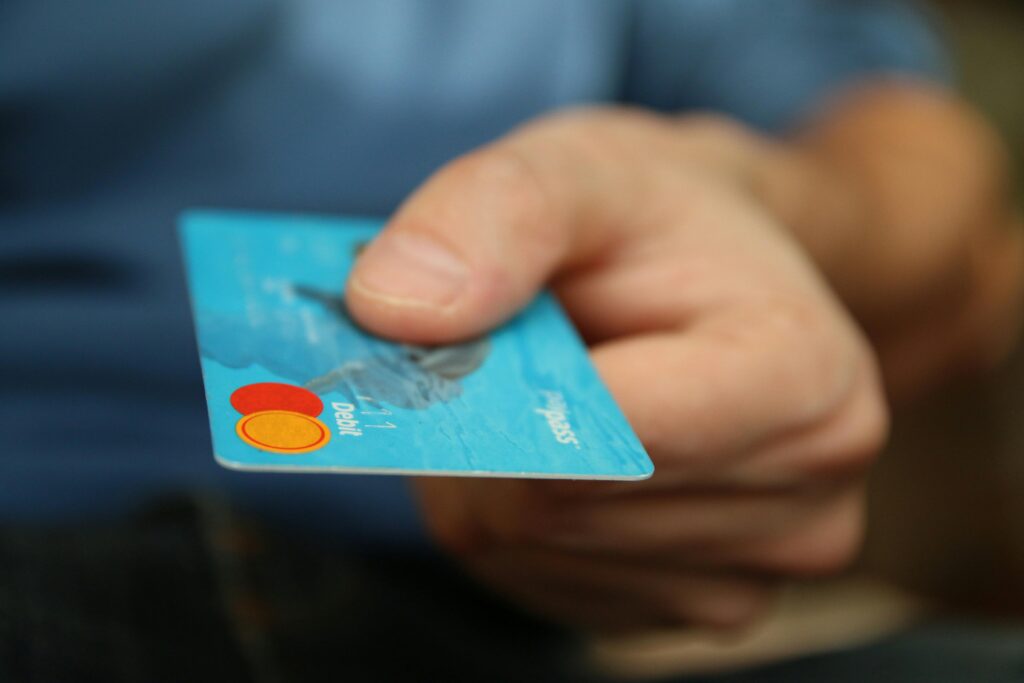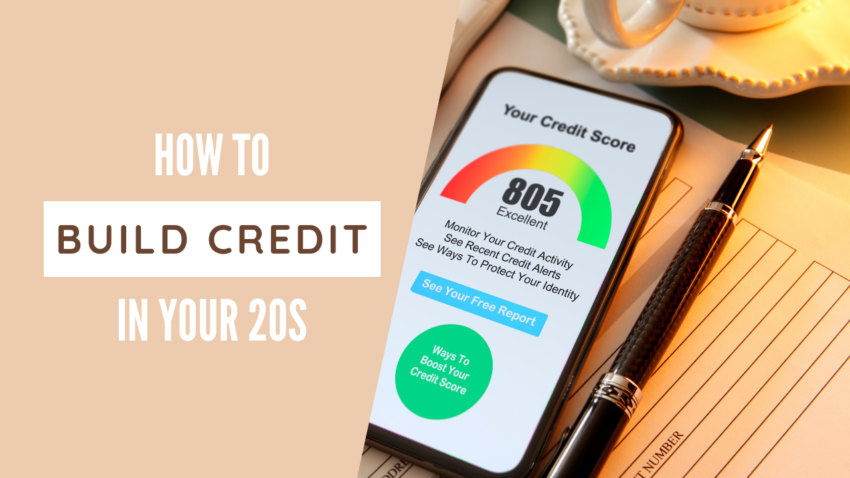When it comes to buying a house, one of the most important factors that lenders consider is your credit score. A good credit score not only makes it easier to get approved for a mortgage but can help you secure a lower interest rate, potentially saving a large sum of money over the life of the loan. Starting to build your credit in your 20s can put you in a great position for homeownership in the future. Let’s walk through the steps to ensure that you are ready to buy your first house in this guide of How to Build Credit in Your 20s.

How Credit Affects Your Mortgage
Before diving into the steps, it is important to understand how your credit score can affect your mortgage. Mortgage lenders use this score to evaluate your level of risk and how essentially how risky it is to lend you money. A higher credit score indicates lower risk, making you a safer bet for lenders. A lower score, can indicate some financial troubles.
Your credit score can influence the interest rate you’re offered. A higher score often means a lower interest rate, which can save you thousands of dollars over the life of the mortgage. On the other hand, a lower score might result in a higher interest rate or even a rejection of your application, due to the risk that the lender would be taking on. This is why building your credit early is so important.
Start with Checking your Credit Report
The first step to building your credit is knowing where you stand. Start by checking your credit report. You are entitled to a free report once a year from each of the three major credit bureaus: Experian, Equifax and TransUnion. You can request your free reports at AnnualCreditReport.com
Your credit report will show your credit score as well as detailed information about your credit history, including any loans, credit cards and outstanding debts. Review it carefully for any errors that could negatively affect your score. If you spot any discrepancies, report them immediately to the credit bureaus.

Establish a Solid Credit History
Building a solid credit history is crucial when learning How to Build Credit in Your 20s. If you don’t have any credit accounts yet, consider applying for a credit card. Many banks offer “starter” cards with lower credit limits, which can be a great way to begin building your credit.
If you are renting, you might be able to have your rent payments reported to the credit bureaus. While rent payments aren’t automatically factored into your credit score, there are services available that will report your rent payments to the credit bureaus. This can help build your credit if you’ve been consistently paying rent on time.
Another option is to get a credit builder loan, which are specifically designed to help people establish or improve their credit. With a credit builder loan, you borrow a small amount of money that is held in a locked account. As you make monthly payments towards the loan, the lender reports your payment history to the credit bureaus, helping to build your credit score over time.
Make Payments on Time – Every Time
One of the most important factors affecting your credit score is your payment history. Late payments can have a major negative impact, so it’s crucial to make all of your payments on time – every time. Whether it’s a credit card, loan or utility bill, be sure to pay your bills by their due dates. A great way to make sure you stay up to date is to set reminders or create a schedule so you know exactly when that payment needs to be made.
To stay on top of payments, set up reminders or automatic payments. This ensures you won’t miss any due dates and will build a strong, positive payment history.

Lower Your Credit Utilization Rate
Credit utilization refers to how much of your available credit you’re using at any given time. Lenders like to see low utilization rates because it shows that you’re not relying too heavily on credit.
Aim to keep utilization below 30%. For example, if you have a credit card with a $1,000 limit, try not to carry a balance higher than $300 at any given time. If you can pay off your balance in full each month, specifically for a credit card, this is crucial.
Work on Reducing or Eliminating Debt
If you already have some debt, working on reducing or eliminating it should be a priority. High debt levels can negatively impact your credit score, and a large debt load could make it more difficult to secure a mortgage.
Start by paying off high-interest debt first, such as credit cards, while making minimum payments on any other debts. Once you’ve reduced your overall debt, you’ll see improvements in your credit score, which will help you qualify for a better mortgage rate in the future.
Monitor Your Progress and Stay Disciplined
Building credit takes time and discipline. It’s important to regularly monitor your progress and check your credit score and report for any changes or errors.
Stay disciplined by continuing to make on-time payments, keeping your credit utilization low and avoiding unnecessary debt. As you follow these steps, your credit score will improve, and you’ll be in a stronger position when it’s time to apply for a mortgage.
FAQs
How long does it take to build credit? Building credit can take anywhere from a few months to several years, depending on your financial habits and how quickly you can establish a credit history.
What credit score is needed to buy a house? Most lenders prefer a credit score of at least 620 for a conventional mortgage, but the higher your score, the better your chances of securing a favorable interest rate.
Can I buy a house with no credit? While it’s possible to buy a house with no credit, it may be more difficult. Lenders may require a larger down payment or higher interest rates. Consider working on building your credit before applying for a mortgage.
Thanks for Following Along!
I appreciate you taking the time to read my blog post! Make sure to follow me on Instagram to get updates on new posts and tips! Check out a couple of my other helpful posts as well! Hopefully this helped you gain insight into How to Build Credit in Your 20s!
